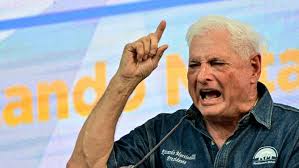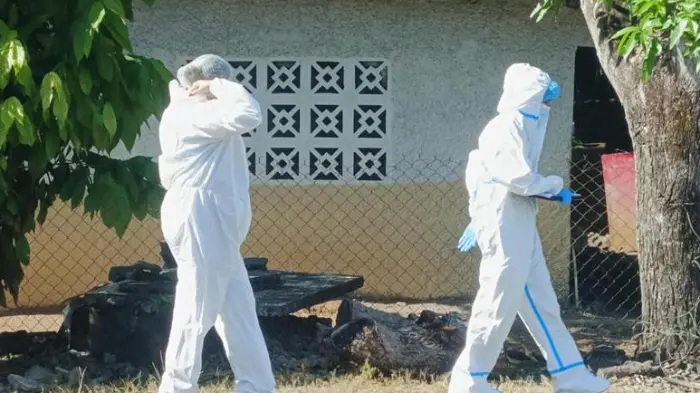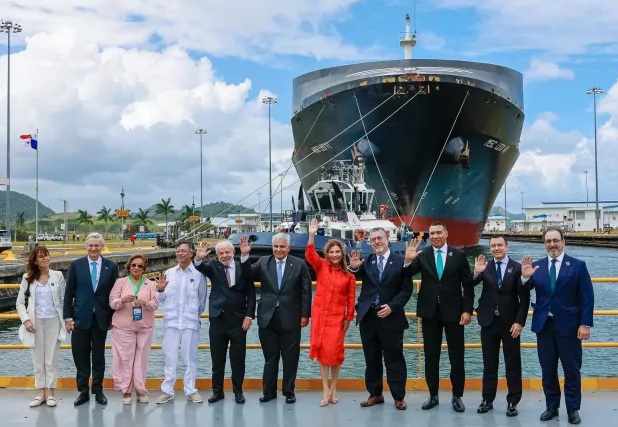Panama denies safe passage for Ricardo Martinelli

The Foreign Ministry reported Friday, February 9, that the request for safe passage for Ricardo Martinelli to leave the country to seek asylum in Nicaragua was denied.
It bases its decision on Article 1 of the 1928 Convention on Asylum and the 1933 Convention on Political Asylum. Thev article says that it is not lawful for States to grant asylum in “legations, warships, camps or military aircraft, to those accused of common crimes, who were properly prosecuted or who had been convicted by ordinary courts, as well as deserters from land and sea.
Martinelli was convicted of laundering public funds to acquire the shares of Editora Panamá América, SA (Epasa) , in December 2010, in the New Business case.
The sentence, of 128 months in prison and the payment of a fine of $19.2 million, was handed down last July by criminal judge Baloísa Marquínez and ratified by the Superior Court for the Settlement of Criminal Cases.
The Foreign Ministry said that the decision to deny the request was communicated to the Nicaraguan ambassador, Consuelo Sandoval Meza after she was summoned to the ministry.
During the meeting, the Nicaraguan ambassador was reminded of the obligation to guarantee that the headquarters of the diplomatic mission in her charge preserves the functions that it is called upon to fulfill, according to the Vienna Convention on Diplomatic Relations of 1961, for which “It should not be used in an incompatible manner.”
The Foreign Ministry warned any action, statement, or communication made by the former president from the diplomatic headquarters that has repercussions or impacts on the domestic politics of Panama, will be considered “interference in the internal affairs of Panama and, therefore, will generate diplomatic consequences.
Home comforts
Martinelli took refuge in the Nicaraguan embassy on February 7 after alleging that he was politically persecuted. Since then all kinds of household supplies have not stopped arriving at the headquarters such as air conditioning units, televisions, mattresses, family-size barbecue grills, water tanks food, and Bruno his pet dog.
He has not missed daily visits from his lawyers, family, and political supporters.
The Foreign Ministry reported this Friday, February 9, that the request for safe passage for Ricardo Martinelli to leave the country to seek asylum in Nicaragua was denied.
It bases its decision on Article 1 of the 1928 Convention on Asylum and the 1933 Convention on Political Asylum. This article says that it is not lawful for States to grant asylum in “legations, warships, camps or military aircraft, to those accused of common crimes, who were properly prosecuted or who had been convicted by ordinary courts, as well as deserters from land and sea.
Martinelli was convicted of laundering public funds to acquire the shares of Editora Panamá América, SA (Epasa), in December 2010, in the New Business case.
The sentence, of 128 months in prison and the payment of a fine of $19.2 million, was handed down last July by criminal judge Baloísa Marquínez and ratified by the Superior Court for the Settlement of Criminal Cases.
The Foreign Ministry said that the decision to deny the request was communicated to the Nicaraguan ambassador, Consuelo Sandoval Meza, after she was summoned to the ministry.
During the meeting, the Nicaraguan ambassador was reminded of the obligation to guarantee that the headquarters of the diplomatic mission in her charge preserves the functions that it is called upon to fulfill, according to the Vienna Convention on Diplomatic Relations of 1961, for which “It should not be used in an incompatible manner.”
The Foreign Ministry warned any action, statement, or communication made by the former president from the diplomatic headquarters that has repercussions or impacts on the domestic politics of Panama, will be considered “interference in the internal affairs of Panama and, therefore, will generate diplomatic consequences.
Home comforts
Martinelli took refuge in the Nicaraguan embassy on February 7 after alleging that he was politically persecuted. Since then all kinds of household supplies have not stopped arriving at the headquarters such as air conditioning units, televisions, mattresses, family-size barbecue grills, water tanks food, and his pet dog.
He has not missed daily visits from his lawyers, family, and political supporters.





